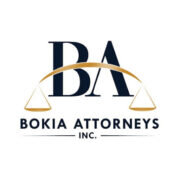Best Brokerage Lawyers in Midrand
Share your needs with us, get contacted by law firms.
Free. Takes 2 min.
Free Guide to Hiring a Real Estate Lawyer
List of the best lawyers in Midrand, South Africa
About Brokerage Law in Midrand, South Africa
Brokerage law in Midrand, South Africa governs the activities of individuals and companies who act as intermediaries in transactions involving goods, services, and property. Brokers help clients buy, sell, or lease assets such as real estate, insurance, financial products, and even vehicles. As a rapidly developing economic hub between Johannesburg and Pretoria, Midrand has a growing brokerage sector serving both individuals and businesses. Brokers are required to operate within a clear legal framework to ensure transparency, fairness, and the protection of all parties in a transaction.
Why You May Need a Lawyer
People often seek legal advice in brokerage matters for various reasons:
- Reviewing and negotiating brokerage agreements to ensure fair terms
- Handling disputes between brokers and clients, such as misrepresentation or breach of contract
- Ensuring compliance with local and national regulations for licensed brokers
- Addressing issues surrounding commission payments and fee structures
- Protecting your interests when buying or selling property through a broker
- Seeking compensation for losses caused by broker negligence or fraud
- Understanding your obligations as a broker or as a client in brokerage transactions
A lawyer can provide objective advice, review documents, represent your interests in negotiations, and help you resolve disputes through mediation, arbitration, or court proceedings.
Local Laws Overview
Brokerage activities in Midrand are governed by several laws and regulatory bodies. Key aspects include:
- Real Estate Brokerages: Governed by the Property Practitioners Act, brokers must be registered with the Property Practitioners Regulatory Authority (PPRA) and comply with rules regarding conduct, trust accounts, and advertising.
- Financial Brokerages: Financial advisors and brokers must be licensed under the Financial Advisory and Intermediary Services (FAIS) Act, administered by the Financial Sector Conduct Authority (FSCA). Strict compliance regarding advice, disclosure, and conflicts of interest is required.
- Commission Structures: Brokerage fees and commissions must be transparent and agreed upon in writing. Unlawful or excessive commissions are prohibited.
- Consumer Protection: The Consumer Protection Act safeguards clients from unfair practices by brokers, such as misrepresentation or hidden fees.
- Compliance and Licensing: All practicing brokers must hold the appropriate licenses, and failure to do so can result in penalties or the loss of the right to operate.
Local bylaws and agreements may also impact brokerage, especially in property and business transactions. Legal professionals specializing in brokerage law can clarify how these rules apply to specific situations in Midrand.
Frequently Asked Questions
What is a broker and what do they do?
A broker is an intermediary who facilitates transactions between buyers and sellers, often for a commission. Brokers operate in sectors such as real estate, insurance, and finance. They must act in their client’s best interests and comply with relevant regulations.
Are brokers in Midrand required to have a license?
Yes, brokers operating in Midrand need to be licensed according to the sector. Real estate brokers must be registered with the PPRA and financial brokers require FAIS accreditation via the FSCA.
How are brokerage fees or commissions determined?
Fees are typically determined through agreement between the broker and client. They should be disclosed up front and documented in writing. Industry standards and regulations may place limits on allowable commission rates.
What legal remedies do I have if my broker misleads me?
If a broker acts unlawfully or unethically, you may lodge a complaint with the relevant regulatory authority, and in severe cases take legal action to recover losses or claim damages.
What information must a broker provide to clients?
Brokers are required to act with transparency, disclosing all relevant facts about a transaction, their fees, potential conflicts of interest, and their credentials or licenses.
Do brokerage agreements have to be in writing?
It is strongly recommended, and often required, that brokerage agreements are put in writing to avoid disputes and for clarity regarding duties, fees, and expectations.
Can I terminate my contract with a broker?
Most brokerage contracts specify the conditions for termination. You can usually end the contract with notice, though you may still be liable for fees for services already provided.
Is it legal for brokers to represent both the buyer and the seller?
Dual agency is permitted in some cases but must be fully disclosed and agreed to by all parties. Brokers must avoid conflicts of interest and act fairly towards everyone involved.
How can I check if a broker is legitimate in Midrand?
Check the broker’s registration with the appropriate regulatory authority, such as the PPRA for real estate or FSCA for financial services. Always request proof of licensing before engaging in business.
How can a lawyer help with brokerage transactions?
A lawyer reviews agreements, ensures regulatory compliance, advises you on your rights and obligations, and assists in dispute resolution if issues arise with your brokerage.
Additional Resources
If you are seeking legal advice or information on brokerage in Midrand, these resources may be helpful:
- Property Practitioners Regulatory Authority (PPRA) - Oversees real estate professionals
- Financial Sector Conduct Authority (FSCA) - Regulates financial brokers and advisors
- Law Society of South Africa - Directory of legal professionals, including specialists in brokerage law
- Consumer Protection Offices - Guidance and assistance for consumers dealing with brokers
- South African Estate Agency Affairs Board - Resources for property transactions
Next Steps
If you believe you need legal help regarding a brokerage matter in Midrand, consider the following steps:
- Document all communications and agreements you have with your broker
- Contact the relevant regulatory body to verify your broker’s credentials
- Seek out a qualified lawyer with experience in brokerage law
- Schedule a consultation to discuss your concerns and legal options
- Follow your lawyer’s advice regarding further action, documentation, and dispute resolution
A proactive approach can protect your interests and help you resolve brokerage matters efficiently and effectively.
Lawzana helps you find the best lawyers and law firms in Midrand through a curated and pre-screened list of qualified legal professionals. Our platform offers rankings and detailed profiles of attorneys and law firms, allowing you to compare based on practice areas, including Brokerage, experience, and client feedback.
Each profile includes a description of the firm's areas of practice, client reviews, team members and partners, year of establishment, spoken languages, office locations, contact information, social media presence, and any published articles or resources. Most firms on our platform speak English and are experienced in both local and international legal matters.
Get a quote from top-rated law firms in Midrand, South Africa — quickly, securely, and without unnecessary hassle.
Disclaimer:
The information provided on this page is for general informational purposes only and does not constitute legal advice. While we strive to ensure the accuracy and relevance of the content, legal information may change over time, and interpretations of the law can vary. You should always consult with a qualified legal professional for advice specific to your situation.
We disclaim all liability for actions taken or not taken based on the content of this page. If you believe any information is incorrect or outdated, please contact us, and we will review and update it where appropriate.









